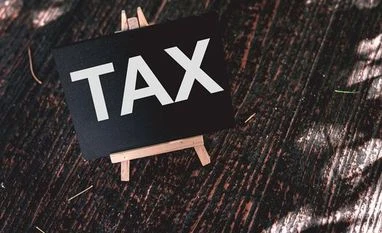The patients who are suffering due to faulty hip implants sold by Johnson and Johnson (J&J) can get as much as Rs 12 million in compensation, according to reports. At present, there are no specific legal provisions to provide compensation to patients in such cases. The government, therefore, had made a panel to devise a formula to compensate the patients. Will the windfall compensation that a patient receives be subject to tax?
The taxation of compensation that an individual receives can be tricky, as the Income Tax Act does not explicitly state when a compensation can be taxed and when not. The regulations only mention that the money awarded by the Centre, state governments and local authorities on account of ‘disaster’ will not be taxed. It means, the money that victims of natural disasters, man-made disasters or railway accidents receive is not taxable.
In the case of J&J, the company in question is a private entity paying money as compensation to individuals. The recipients, however, will not need to pay any tax on the money they receive, according to tax experts. “The compensation that the patients will receive will fall under capital receipts, so it will not be taxable,” says Naveen Wadhwa, a chartered account with Taxmann.com. Any money a person receives can either be a capital receipt or revenue receipt under the income-tax laws. While revenue receipts are taxable, the Income Tax Act specifies the capital receipts that can be subject to tax. Such compensations are not part of that.
The thin line
In most cases of compensation, the recipient will not be subject to tax. The compensation awarded to motor accident victims by the Motor Accident Claims Tribunal (MACT), for example, is also tax-free. But things differ when it comes to the compensation a person would receive on account of, say, a consumer court award or land acquisition by the government.
When a person gives up his land to the government and receives a compensation for it, the proceeds are subject to tax. “In such a case, the individual has transferred right into an asset to the government. The income, therefore, is taxable. In cases of disaster, the money paid is not in lieu of an asset or loss of an opportunity,” says Kuldip Kumar, partner and leader, personal tax, PwC India.
Similarly, in the case of consumer cases, whether the compensation is taxable or not depends on the reason for the compensation. If a person, for instance, orders an expensive perfume that causes allergy to his body, and he gets compensation for the harm caused to his body through a consumer court order, the proceeds will not be taxable. But if a business owner is unable to attend a meeting and suffers loss due to flight cancellation, and the court awards him compensation for the loss of business, it would be taxable. “In this case, the compensation is for the loss of business revenue. If the person would have earned that money in the course of business, it would have been taxable,” says Wadhwa.
Interest portion is controversial
Of late, many home buyers have approached consumer forums and even the Supreme Court (SC) against non-delivery of houses by developers. The forums and the SC have passed many judgments that developers refund the money with interest. In such cases, the original amount is not taxable but the home buyer needs to pay tax on the interest portion. While filing returns, the individuals need to mention the interest received under the head ‘income from other sources’ in the ITR form and pay the relevant tax on it.
Tax experts say that in this case, the interest paid is for the violation of the contract and, hence, it will be taxable. There have been many cases pertaining to interest as part of compensations in high courts. Most courts have said that the interest in such a case will be taxable. Only a few have given contradictory judgments.
But if the patients who used J&J hip implants or motor accident victims receive compensation, will they need to pay tax on it? In such cases, the interest will not be subject to tax if one looks at the high court orders in such cases. The high courts of Allahabad, Himachal Pradesh and Madras have taken a view that such an interest is not taxable as income. The Madras High Court ruling has observed that interest portion in case of compensation awarded by MACT is not income and should not be taxed. The court said that the intention of the legislature in awarding compensation to victims is to rehabilitate them. “If there is a direct conflict between the two legislation, then this court is of the view that a social welfare legislation should prevail, since it subserves larger public interest,” noted Justice M V Muralidaran.
According to I-T laws, the interest received on the compensation is subject to tax deduction at source if it is over Rs 50,000 in a financial year. But TDS does not mean that income will be subject to tax. If the affected party receives interest after deduction of tax, a refund can always be claimed.
Unlock 30+ premium stories daily hand-picked by our editors, across devices on browser and app.
Pick your 5 favourite companies, get a daily email with all news updates on them.
Full access to our intuitive epaper - clip, save, share articles from any device; newspaper archives from 2006.
Preferential invites to Business Standard events.
Curated newsletters on markets, personal finance, policy & politics, start-ups, technology, and more.
)